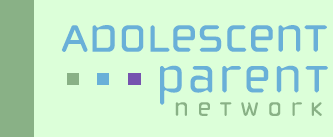
December 2010
Every small positive change we make in ourselves repays us in confidence in the future.
-Alice Walker
Announcements
MOAPPP’s Office Has Moved!
Maybe you tried to reach us sometime in November and got a disconnect signal from the phone company or knocked on our door and were greeted by the Menopause Center staff! We’re sorry if either of those traumatic events occurred for you, but we’ve been busy switching offices with the Menopause Center. We are still located in the same building, on the same floor and even have the same suite number: 111. So if you drop by the Richards Gordon building and wonder where we are, just head on down the hall—you’ll find us.
Research
Minnesota Has Both the Highest and Lowest Rates of Teen Births in the Country!
How is this possible? A new publication (PDF) released by the CDC shows that although Minnesota is in the bottom 10 states for teen births, we are in the top 10 (not a good top 10 to be in!) for birth rates to black teens.
Romantic Partners and Depressive Symptoms During Adolescence
This study examined the relationship between older romantic partners and risk of depression in adolescents. Findings suggest that involvement with an older male partner during adolescence may increase the risk of poor emotional outcomes among females.
Preterm Birth and Reduced Birth Weight in First and Second Teenage Pregnancies
This study (PDF) found that teenage mothers are at increased risk of preterm birth compared to adult mothers and this risk is further increased in second time teen pregnancies. This study highlights the importance of ensuring pregnant teenagers have appropriate prenatal care. A first pregnancy may be the first and only time a pregnant teenager interacts with health services and this opportunity for health education and the promotion of contraception should not be overlooked.
Resources
Things to Know Before you Say “Go”
This “flash care” game set from the Dibble Institute helps teens rate their romances. When taken together, the answers give teens a fuller portrait of whom they’re dating, what to expect in the future and how to proceed in the relationship. The accompanying book explains more about what different behaviors reveal about a partner, why each is important and consequences to consider. Most importantly, the cards challenge teens—especially girls—to clarify what’s important to them, as individuals, in a romantic relationship. Rather than waiting to “be chosen,” these teens become empowered to actively seek what they want and deserve.
Historical Trauma and Microaggressions: A Framework for Culturally-Based Practice
This is the second issue (PDF) in a series related to trauma and child welfare systems. This issue captures the presentation of Dr. Karina Walters on December 4, 2009 titled “Historical Trauma, Microaggressions, and Identity: A Framework for Culturally-Based Practice,” which was part of the Center for Excellence in Children’s Mental Health (CECMH) Lessons from the Field seminar series.
From Baby to Big Kid: Month 22
Learn about toddler development between 18 to 24 months and what you can do to support his learning and growing.
Upcoming MOAPPP Trainings
February 24, 2011
Meeting the Unique Needs of Adolescent Mothers and Fathers
9:00 a.m. – 4:00 p.m.
Minnesota Department of Education
1500 Highway 36 West, Roseville
Adolescent parent programs strive to facilitate long-term self-sufficiency, build parenting capacity and ensure the healthy growth and development of the children born to young parents. This workshop examines adolescent development; national and state data related to adolescent parents; systems that impact adolescent parents; strengths, opportunities and challenges young parents bring to their new role; and current research on best practices for working with adolescent parents. Participants will also learn practical tips for helping adolescent parents understand their children’s perspective, fun ways to communicate parenting concepts and other activities for use with young families.
For more information, see the flyer and registration form (PDF). Click here to register online. Questions? Contact Sue at 651.644.1447 x 15, [email protected].
Other Upcoming Trainings
January 12-14, 2011
Strong Foundations Conference
State of the Baby: Using a Developmental Lens
Arrowwood Resort, Alexandria
The purpose of this conference is to strengthen the knowledge, skills, strategies and alliances of those who work with expectant families, infants, toddlers, parents and communities to build a strong foundation for healthy development. The conference aims to highlight sessions that offer new information, advanced knowledge, practice, and skills development with opportunities to collaborate, build awareness of existing services and resources, and forge new professional relationships.
- Wednesday, a day-long intensive features Dr. Robert Anda and Dr. Megan Gunnar on the science of child development.
- Thursday includes keynotes by both Dr. Valora Washington (CAYL Institute) and Richard Chase (Wilder Foundation).
- Friday’s keynote is presented by Kathy Stevens (Gurian Institute).
Register online here. Questions? Contact Sara Zettervall, CEED Events Specialist, at 612.625.2252 or [email protected].
January 24-25, 2011
Minnesota Fatherhood & Family Services Summit
Kelly Inn, St. Cloud
Keynote presenters include Bill Doherty (MN), Carolyn and Phil Cowan (CA), and Michael Hayes (TX). Presenters will address topics of co-parenting, family relationships, parenting and paternity education, child well-being and much more.
This conference is ideal for professionals working in areas of corrections, child support, child welfare, early education, early childhood programming, fatherhood programs, family law, teen pregnancy prevention, maternal/child health, family relations, social work, violence prevention and related fields. For more information and to register, visit www.mnfathers.org.
For more resources and information about adolescent parents, visit the Adolescent Parent Program page on the MOAPPP website.